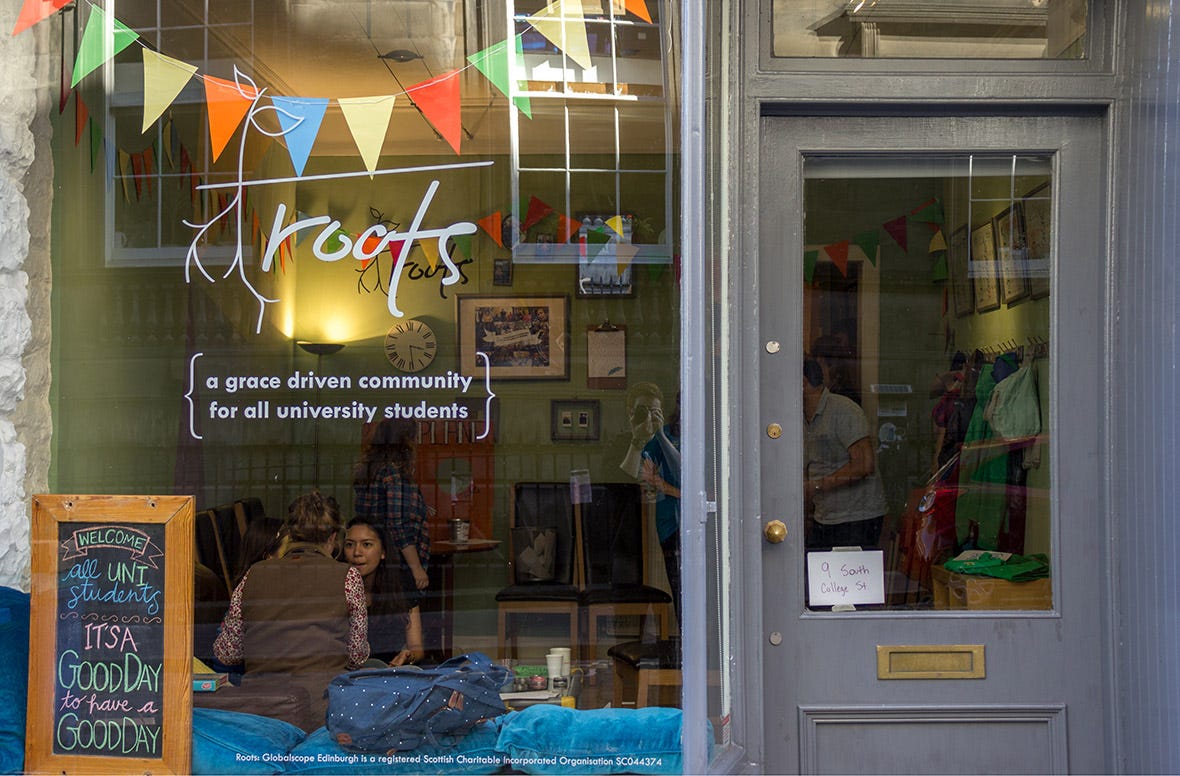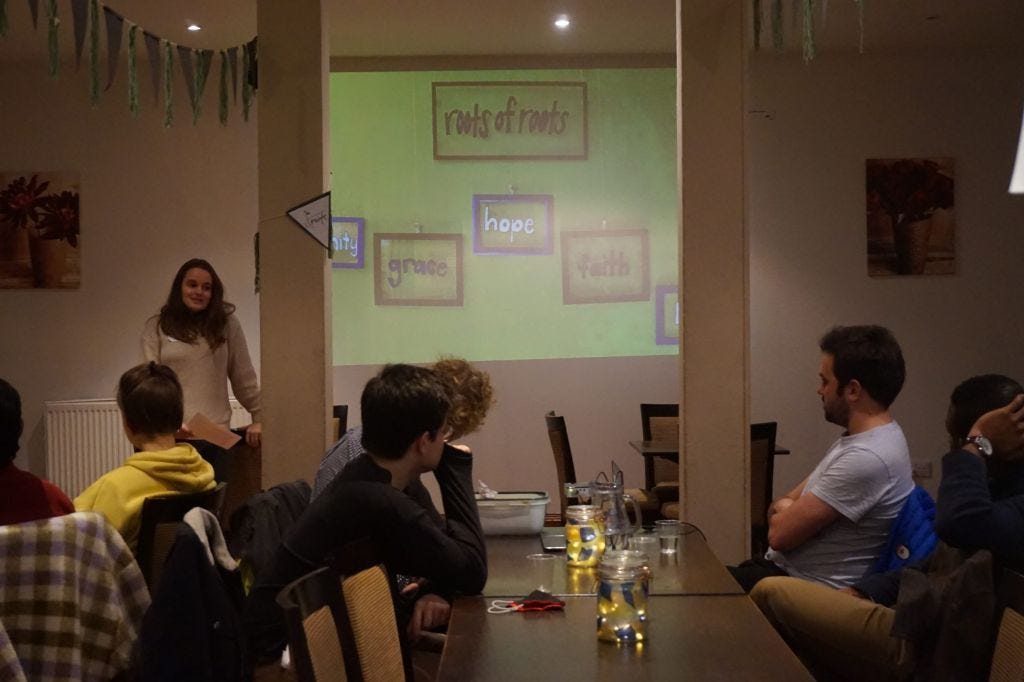Finding Community Through Food: Sharing Our Stories with Roots
A few weeks ago, we joined Roots, a charity supporting university students in Edinburgh, to share insights from our blog and delve into the role of food and storytelling within our community.

When I first went to Roots back in 2018, I was 19 years old and had just arrived in Edinburgh during the height of welcome week. On my first day in the city, I bumped into Emma and Georgia, who’d later become my best friends. A few days later, we heard about a free curry night at the Aroma Café, situated within the premises of the local mosque. Craving some familiar food and a free meal, given how much money we were spending during welcome week, we decided to go.
It was an odd night. We had some great curry, but there was more to the evening: we played games, laughed our bellies off, and the night ended with a talk and a prayer. Roots has a Christian foundation, which, though I am a non-believer, was a welcoming space for everyone. I grew to find comfort in their beliefs and values, which formed the foundation of its loving and caring community. For the next four years at university and beyond, Roots became a central aspect of my life. I spent all my free time at the Roots House, where tea and coffee were always available, and space to study comfortably. There was always someone to chat with, get a hug from, or play a card game with. Roots left a big mark on my life; the people I met there saw me grow up. They cheered for me as I navigated life from being a student, an asylum seeker, to a refugee, and now, to working at MILK.
That’s how I was invited to a Tuesday curry night to give a small talk about the blog and share a bit about MILK and the meaning of food in our community with the students in Edinburgh. Just like at MILK, food is central to Roots—a free meal is what led my friends and me to go there in the first place, but we stayed for the community we found through the act of sharing a meal. Tuesday curry nights are dedicated for this, where students, tired from long days and nights of studying, come for some laughter and connection. The food is tasty, and the games are always fun and silly—sometimes charades, or building the tallest tower with newspaper. The night always ends with a talk that is uplifting, helping us reflect on our lives and find meaning amidst despair and fatigue.

Although targeting a different audience, this is perhaps what our own Tuesday community meals at MILK looks like—where food is served and a space is provided for people to eat together, fostering a sense of community in an increasingly individualistic world that’s making us lonelier and sadder, and incapable of showing empathy and care for one another. It’s nice to sit down and know that you are a part of something.
Our aim for the talk on Tuesday night was to broaden this perspective by sharing a few lessons we've learned from working on this food blog and recognizing the people behind the dishes—the ones who are cooking and feeding, especially the women in our community and in our lives. What can we learn from them? We’d like to share some of these reflections with our readers too.
Working with women, it becomes starkly evident how food and the practices around cooking and feeding are often taken for granted, especially when performed by the motherly or caring figures in our lives. Listening to the women at MILK, you soon realize there’s more to cooking and feeding. As women, mothers and wives, our gendered roles are mostly organized around domestic duties, and in particular, food, however, as migrants and displaced people, these roles carry an added layer of complexity.
If you’ve been to one of our conversation cafés, you know that food is often a central topic. Sometimes, food provides a way to start conversations about difficult experiences associated with migration and displacement, such as loss and grief. Through food, we reminisce together about the homes and people we’ve left behind.
Our community also speaks many languages, and food helps us connect despite language barriers. Cooking and feeding one another is how we show that we care for each other when words fail us.
Food also requires a lot of creativity, especially when certain ingredients aren’t readily available in the UK. Women in our community find ways to replicate tastes from home. Despite various limitations, whether economic or material, it’s amazing how they step up to cook healthy and nutritious meals for their families, playing an important role in ensuring their families stay healthy and cared for while navigating the asylum system or life in the UK. All this is to say that food is central not just for sustenance, but also to resist and flourish.
It was so lovely to share a bit about MILK with the university students in Edinburgh. Migrants, including refugees and asylum seekers, bring with them vibrant food cultures. However, through this blog, we also hope you’ll see the faces and hear the voices behind the dishes— that are resilient, powerful, and beautiful.
Kim Supajirawatananon and Shakya Seresinghe act as the overall contributors for the blog, pitching article ideas, putting together articles, posting, and making small edits. We also run a peer-writers project on the side, where creatives from the wider community support the blog through editing, interpreting, translating etc. This blog is a collective effort, and we thank everyone for their contributions.
All our content is free. If you can, we ask you to consider making a small pledge so we can compensate the contributors in small ways.
Thank you very much.




